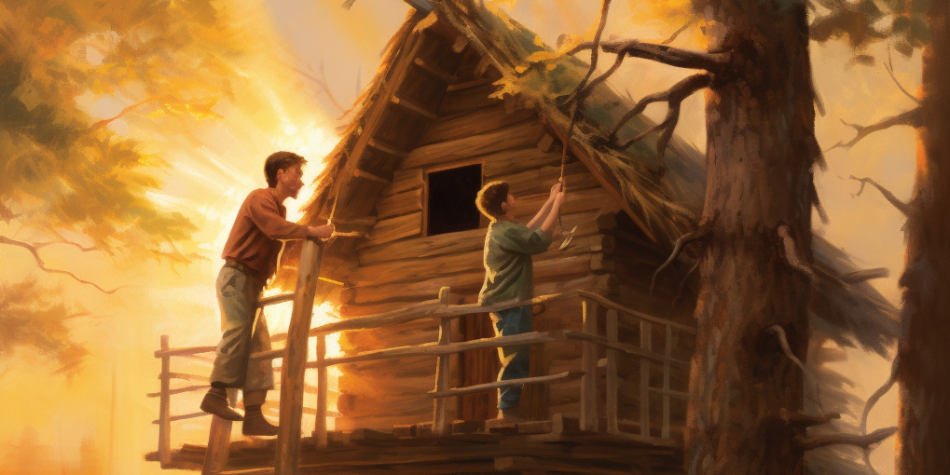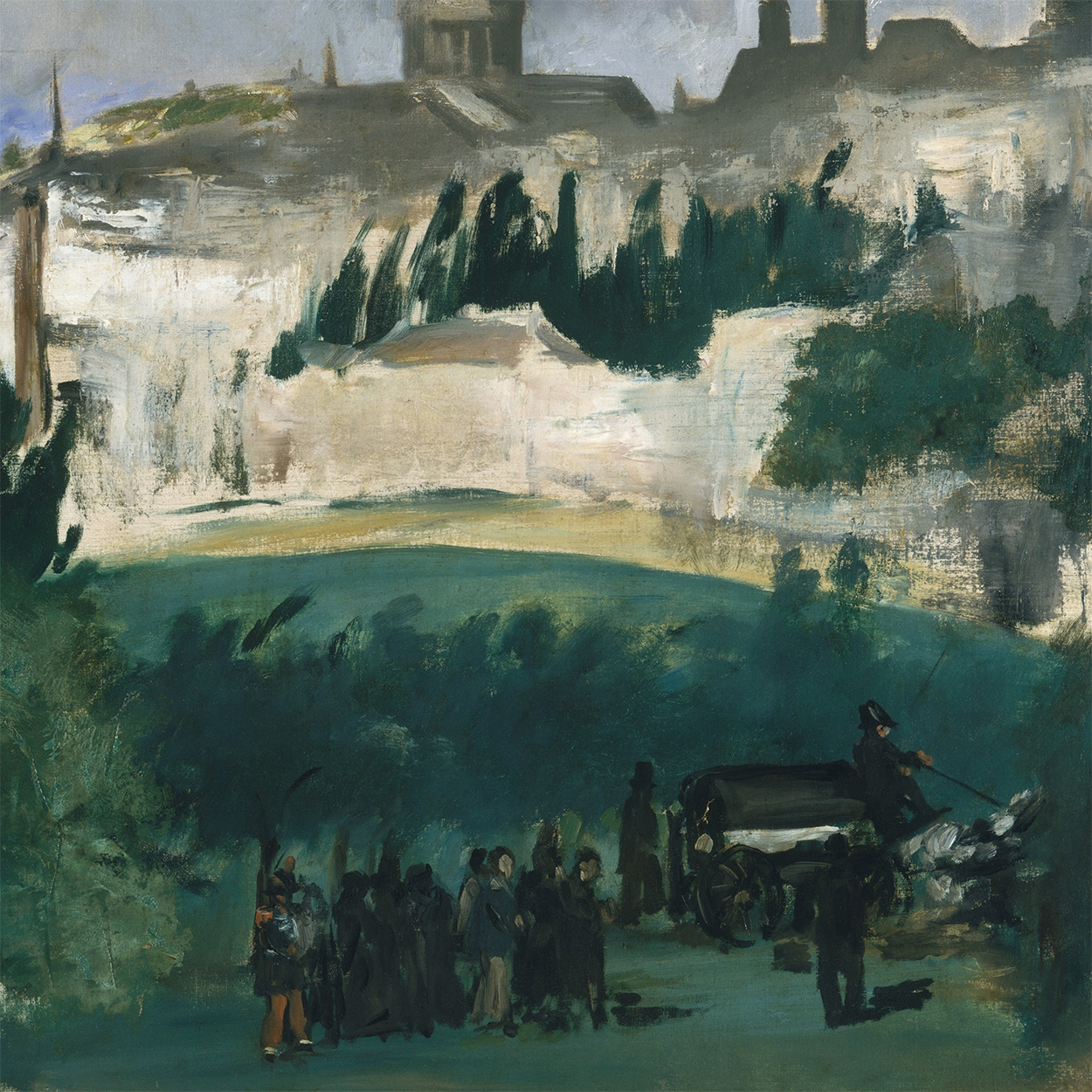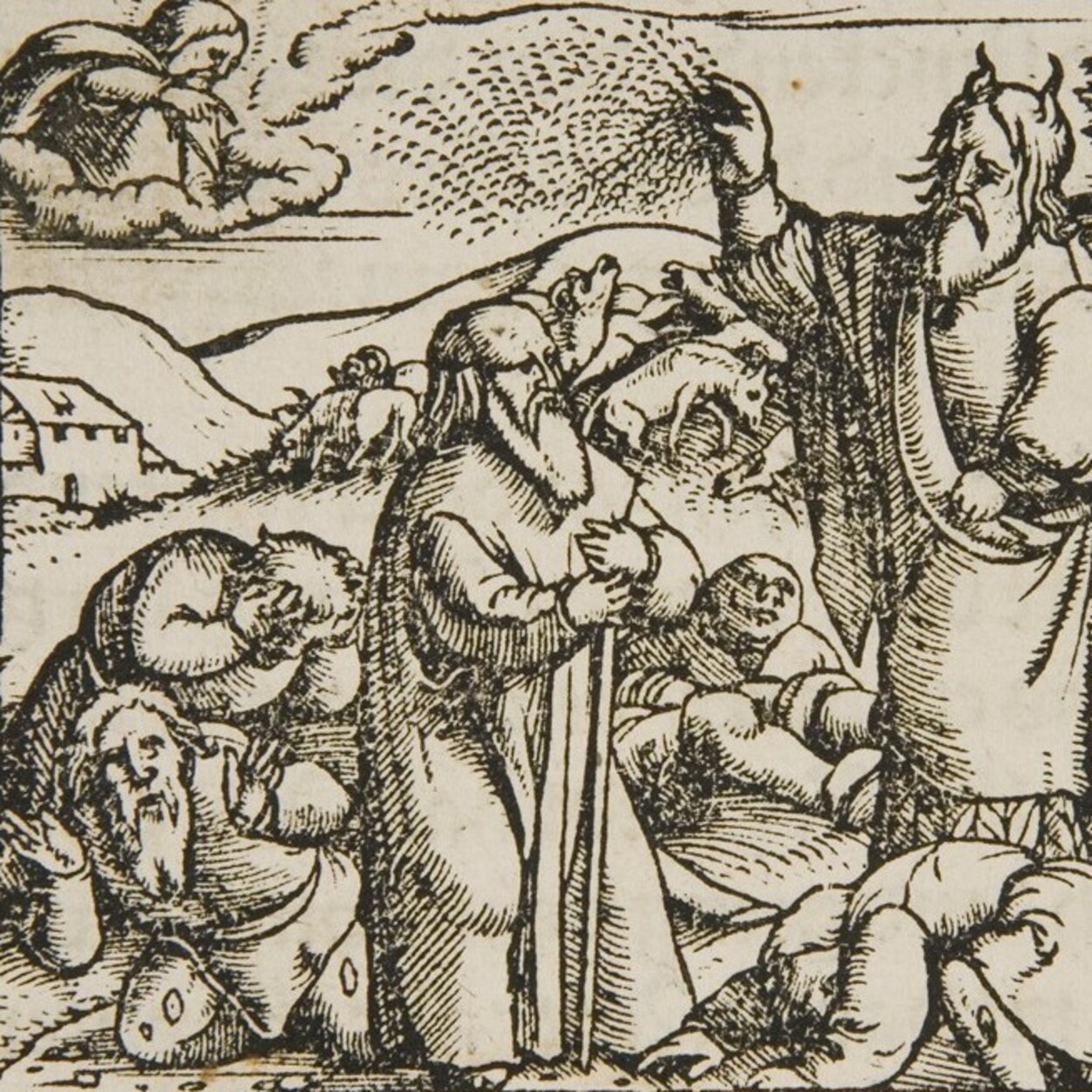The last night of the family reunion, my husband, Quinn, and I were sitting around the fire pit discussing our plans for flying back home to Virginia when his brother said, “If you lived in Idaho, you’d already be home.”
To be fair, he’d been upfront that his ulterior motive for hosting the family reunion near Boise was to display Idaho’s true glory and thus convince us, the East Coast holdouts, to move there. My 80-year-old mother-in-law’s plaintive requests have been even more straightforward: “When are you going to come back to Utah?” she regularly asks Quinn. “I want my son to live closer to me.”
Between us, my husband and I have a total of seven parents and siblings, all but one of whom are scattered across the West from Arizona to Utah, Idaho to Oregon—which makes us and our ridiculous insistence on living in Virginia the burr in the saddle of family togetherness. The longer we live here, the more galling it becomes to certain family members. Like, Come on, it was funny at first, but now the joke is over. We fantasize about relocation as a swift solution.
Fidelity to a community can be a tough argument to make to Latter-day Saints. For starters, most of us feel a doctrinal pull to prioritize family over friendship or other kinds of community. According to the research, you’re more likely to stay put if you live within an hour or so of five family members.
On the other hand, Jesus Christ told his disciples, “Foxes have holes and birds of the air have nests, but the Son of Man has no place to lay his head.” It wouldn’t be a leap to assume that our effort to follow Christ might require some nomadism; other Christian traditions have assumed as much.
Then there’s our church’s history of geographic mobility. As soon as we got home from the family reunion in Idaho, our 16-year-old headed to trek, a Church-approved reenactment of the pioneers’ exodus to Utah, with its echoes of much earlier journeys—the Israelites leaving Egypt for a distant Promised Land, the Nephites and Jaredites from the Book of Mormon building their own boats to abandon a homeland they still loved.
There are lessons to be learned from trek about perseverance through adversity, but perhaps another unspoken lesson is that we don’t much prioritize staying put. That following God may mean leaving behind a beloved community and going someplace new. Somehow we’re prepared for that kind of spiritual nudge, ready for the whisper that tells us to pack up.
To be honest, I think about moving all the time. About being closer to family. Having more time together on a regular basis, not just at these biannual reunions. Seeing our mothers without paying roughly the cost of a plane ticket to Europe—a budgetary gut punch that I loudly decry every time I pay $600 to go to Mesa instead of Marseille. Fewer of those criminally expensive tickets for our older daughter, who now goes to college in Salt Lake City and shows every intention of staying there for a while.
To be honest, we’re most likely to talk about moving when we’re both at wit’s end with our work or on days when my husband’s calling requires twelve hours of church meetings and phone calls that threaten his faith in humanity. He’s the stake president, and we joke (is it really joking?) that one of the very few ways to get an early release from that calling is to move—probably more moral than taking up smoking. We fantasize about relocation as a swift solution to a party pack of problems. Community drives spiritual growth.
Why do we stay? For starters, because we worked for it.
When we moved to Blacksburg, Virginia, for Quinn’s job in 2012, to a town where we were not only family-less but friendless, Southwest Virginia was Mars, the residents like those alien life forms in Arrival who seem vaguely friendly but have their own impenetrable language. It was so obvious we didn’t belong that I immediately started wishing for a swift departure.
Then practicality won over. We would be here for at least the foreseeable future. Why be miserable? Why not try to make Blacksburg home?
I conducted what I retroactively think of as Love Where You Live experiments—systematic exertions designed to help me fall in love with my new hometown. I walked the neighborhood. I showed up to the town festivals. I volunteered at the historic movie theater.
Proactive behavioral changes along these lines nurtured place attachment, a feeling of community belonging that, research shows, enhances well-being, health, and longevity. (I wrote about it in my 2016 book This is Where You Belong.) And at the point when we’d stockpiled a prepper’s supply of place attachment, we loved it too much to ever want to move.
You can see how it works in wards, a kind of quasi-neighborhood based on geography. We did all the right things to make the Blacksburg Ward our home: invited people over for dinner, arranged play dates for our kids, and showed up for the ward barbecue with a 9×13 of brownies. We accepted callings and did what we were asked. We started caring about people, and they started caring about us in return.
Over time, the community of the ward turned into something cogent and life-giving, even more vital and necessary because we lived so far from family. We’ve spent Thanksgivings, Christmas Eves, and birthdays with ward friends. We got each other through COVID with outdoor lunches and Saturday evening Zoom trivia games. We’ve vacationed together, eaten dinner together, sat through a hundred book clubs, and taught each other’s kids. They are our people. It took time to get there, but we did.
According to a longitudinal study by Cigna, about 60 percent of Americans say they’re always or sometimes lonely. BYU professors Julianna Holt-Lunstad and Tim Smith have said that a lack of social connections can wallop your health as much as smoking 15 cigarettes a day. Wards and branches are an effective, locally based loneliness prevention mechanism for those who want to take advantage of it. They’re also amazing drivers of place attachment.
I get asked a lot how adults, and particularly newcomers, can make friends in a community, and my best advice always is: Go to church.
But to really benefit from it, you have to stay. Build Zion wherever we live.
But there’s a reason why a member who wants an out-of-unit assignment—to attend a ward that doesn’t correspond with where she lives—must seek seldom-granted permission from the First Presidency. We’re meant to stay together in communities. We’re meant to sit in the same chapel with the people we’re struggling to forgive or sustain or look in the eye or make civil conversation with. It’s how, together, we learn to work through minor social and spiritual injuries and antipathies and have our rough edges knocked off, and become a little more Christlike.
It’s the community that drives spiritual growth. The tougher the community, the faster the growth.
Perhaps that’s why church leaders long ago stopped advocating for physical gathering and started telling us to build Zion wherever we live, whether London or Zanzibar or Blacksburg. Our best and most challenging service and sacrifice is to faithfully remain in the communities we already have, wherever they happen to be. It’s not a grand cross-continental relocation a la Nephi, yet “they also serve who only stand and wait.”
In a time of high desire for mobility—nearly half of Americans at least contemplated moving during COVID—there are subtle benefits in staying put. Consider, for instance:
- Social capital. Because I’ve lived here for a long time (and, let’s be honest, because I’ve written a couple of books about place), the mayor knows me by name. The owner of the bookstore too. My husband’s church service means wherever he goes, he knows people, and people know him. That sort of knowing and being known takes years to develop. Moving resets your social capital meter to zero.
- Opportunities for contribution. Knowing and being known also means being able to serve more effectively. Sometimes that’s exhausting—another one of those things the natural man in me would gladly leave behind in a relocation. But it’s also rewarding.
- History and narrative. I wrote in This Is Where You Belong about building place attachment in happy memories. Think of your experiences in your community as pins in the map. The longer you’ve lived there, the more you have.
- Community trust. Health and well-being benefits accrue to those who not only know their neighbors and fellow community members but trust them, too—like when you ask the guy across the street to feed your cat while you’re on vacation. You can’t do that on Day 1 in a new place.
- Place attachment. I love it here. If we moved to be closer to family, would we spend the rest of our lives trying to recapture the magic of this place?
I’m careful never to pledge that I’ll live in Blacksburg forever. Who knows if, in a couple of years, we too will feel those nudgings of the Spirit urging us elsewhere? My second book, If You Could Live Anywhere, outlines how to be wise about choosing a place to live; I’m not entirely opposed to the concept. And I know that I can use the same tools that helped me fall in love with Blacksburg to intentionally fall in love with somewhere else.
But sometimes I think I’d just like to stay here. We’ll keep flying to the family reunions out west. We’ll refuse our families’ entreaties. We’ll build the kingdom in Virginia. We’ll stay put.
















